Chickens are among the best and easiest livestock animals to keep. Even a small backyard flock of chickens can keep your family flush with fresh eggs and stocked with high-quality, organic meat. And the numbers speak for themselves: the popularity of chicken keeping is rising across the nation!
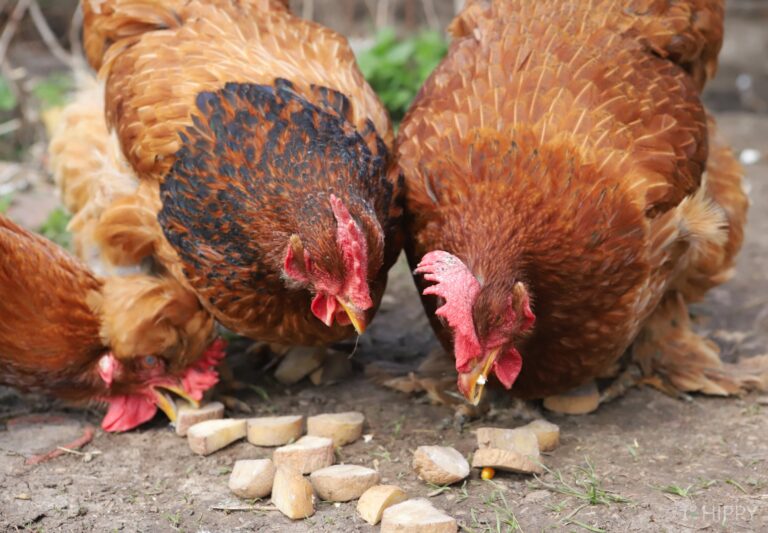
And the great news is that, out of all the animals you might choose, chickens are probably the easiest to keep. They tend to be healthy, pretty self-sufficient, and highly affordable.
That being said, despite the preponderance of information out there in the world and online, it’s easy to make some mistakes when you get started with them. I see new owners, and enthusiastic though they might be, make the same ones over and over again.
In an effort to put a stop to that I’m bringing you a list of 20 crucial mistakes that you should avoid with your own flock.
Getting a Rooster
Let’s get one of the most obvious and potentially most aggravating out of the way first thing. Getting a rooster is something you might end up regretting!
I say that because roosters are noisy, aggressive, and prone to give you fits unless you spend a lot of time with them to make them friendly.
Even then, they will rarely extend that same courtesy to pets and other animals, other members of your family and visitors. It’s no laughing matter, either, because the stout beak and long spurs of a rooster can cut, scratch, and puncture you easily when they go on the offensive.
Plus, roosters will be hell-bent on mating with your hens- and unless you keep them separated- they will succeed. That means if you don’t stay religious about egg collection, your flock will soon be expanding!
Some places even forbid people from owning roosters inside the city limits because they are so annoying, so you’ll have to check the laws and regulations where you are.
Not Getting a Rooster
On the other hand, not getting a rooster might also be a huge mistake! No, I’m not being glib. The point is it’s all about context…
Roosters can do a lot of good. Their ceaseless vigilance can help keep the flock safe from all kinds of predators, they keep the hens in line and, assuming there are enough hens to go around, they can be a great aid in promoting harmony among your birds.
In a way, they can act like your little lieutenants, and it is possible that they can be made tame through enough treats and pleasant interactions.
Plus, if you want to expand your flock the old-fashioned way, and particularly if you want your hands to hatch the eggs and raise the chicks, you’ll need a rooster to fertilize them.
And not for nothing, roosters are the most magnificent chickens around, with some breeds like the Rhode Island Red and Salmon Faverolle being absolutely gorgeous and you don’t want to miss out on that in your own flock.
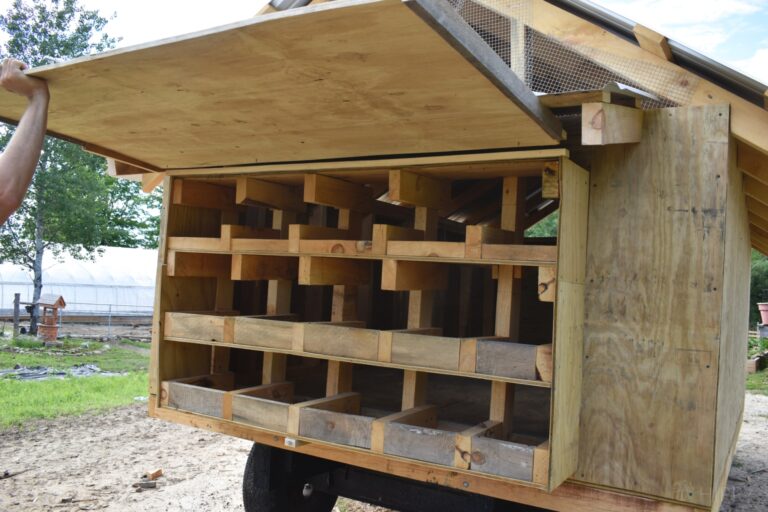
Skimping on Nesting Boxes
The best thing about keeping chickens, in my opinion, is the fresh eggs you’ll get almost every single day. But it’s possible to hinder egg production if you don’t invest in adequate nesting boxes.
Hens need a just-right spot if they’re going to lay eggs consistently. Your nesting boxes must be adequately sized for an individual hen, enclosed, clean and most importantly feel secure to her if she’s going to lay it.
And, for your sanity, it’s best if you can open them up from the rear to collect the eggs from unless you want to go inside the coop and get them that way.
If your egg production isn’t where you want it to be, or if your hens seem stressed out or are consistently laying in odd and out-of-the-way places, there’s definitely something wrong with your boxes even if you think they are okay. Reassess and make them bigger if necessary.
Collecting Eggs First Thing
I’m very guilty of this problem, even today: When your hens are laying eggs, you’ve got to stay on top of collecting them bright and early first thing in the morning. No exceptions, and no ifs and no buts. This is for a couple of reasons…
For starters, if an egg is fertilized it will start to develop in short order if it stays warm. If you get it into the refrigerator ASAP, it won’t develop.
Worse, the longer that an egg sticks around in a nest the more likely it is that the hen that laid it will become broody, meaning she will be intent on laying a clutch and then hatching them to have babies.
When a hen goes broody, she stops laying eggs! Broodiness typically lasts for about 3 weeks, so that’s how long your hand will be out of commission if it happens.
Avoid these bad outcomes by getting those eggs every single day, and twice a day if needed.
Not Learning About Typical Breed Characteristics
A chicken is not a chicken is not a chicken: There are hundreds of different breeds out there, and they are all a little bit different in terms of their essential characteristics. Size and weight, egg productivity, egg size, health, temperament, and a lot more.
If you want tons of eggs, you’d be best served looking at a chicken like the Australorp. A mild-mannered, docile bird like the Orpington is very difficult to beat if you want a pet, but it is a bad choice for eggs because they are extremely broody.
Jersey Giants live up to the name and are absolutely immense as far as chickens go, but not the best choice if you’re limited on space. Likewise, a tiny Serama bantam rooster isn’t going to put up much fight against larger predators.
Understanding the unique differences in chickens will allow you to build your flock according to your wishes and also to your own personality
Inspecting Eggs Closely
Back to eggs, you mustn’t become lazy when it comes to inspecting. Most folks I know, and that includes me, your author here, will give eggs a once over and good light, then put them in the carton or rack for storage.
Don’t make that mistake. Proper food safety starts with inspection, and you should be looking over your eggs and strong light and preferably with reading glasses or a magnifier looking for cracks and other defects.
Any imperfection in the shell might allow bacteria, especially from chicken poop, in to contaminate the inside of the egg and result in devastating illness.
Bad eggs are easy to spot when they have major defects, but difficult to spot if you aren’t looking for a small crack. It will only take a few extra minutes in good light, so make sure you do it right.
Skipping the Head Count
If you have only a handful of chickens, you probably don’t need to count them but when your flock starts to grow towards 10 or 12, or 20, or 50 (you’ll learn about chicken math soon enough) it is imperative that you perform a nightly headcount, and sometimes a morning headcount.
Why? Don’t you know how many chickens you have? In truth, you really don’t unless you do the headcount! Chickens go missing and get picked off by predators, sometimes with nary a trace, all the time. Sad but true, people also like to steal chickens.
Even if you don’t know every single one of your chickens by sight the headcount won’t lie. But the headcount can be surprisingly tough!
If your chickens are running around all over the place or in a state of agitation, it’s very easy to get mixed up. Sometimes you need to go out and walk the run and physically account for them.
Leaving Items Near the Fence
What is surprising to most beginning chicken keepers is the fact that chickens don’t fly very well. Some truly can’t fly at all, and a handful are surprisingly good flyers, but the vast majority are only capable of flapping, fluttering hops…
But there’s a lesson in that: they can jump, and some of them can jump pretty high! Worse, chickens are surprisingly clever:
If you leave any items near the inside of the run fence, or near the fence at the edge of your property if you let them free range, your birds will soon realize that they can hop from one, to the other and then right over the top of the fence to go exploring.
Not the end of the world necessarily, because most chickens don’t go too far from their coop instinctively.
But this can expose them to more danger or allow them to get somewhere that you really don’t want them, like up in a tree or on top of your house. They can be very difficult to get down from these places! Prevent that by keeping the fence line clear.
Not Learning About Local Predators
Chickens have tons of predators out there in the world. In fact, just about everything that eats meat loves to eat chickens! I know I sure do…
Accordingly, it’s critical that you figure out what the most common chicken predators are in your area, and I mean specifically in your neck of the woods. That’s the only way you’ll be able to act intelligently when it comes to protecting your birds.
You have to protect against mice and snakes very differently than you will against birds of prey and larger animals like coyotes. Know the enemy so that you can take action against them!
Skipping Vaccines
Unfortunately, I see this mistake entirely too often. There are many diseases out here that can be devastating to chickens, and worse yet ones that are extremely contagious.
Bird flu, CRD and others can kill your birds or make them terribly ill, reducing productivity and sometimes causing ailments or injury that can last for life.
Luckily, some diseases can be vaccinated against which will immunize your birds or reduce the severity of infection and slow the spread.
I understand there is a lot of concern over what goes into the animals that we will later eat, but broadly speaking if you care about your flock vaccination is a good way to keep them healthy and happy. Talk to your vet to figure out a plan that is right for your flock.
Installing a Night Light
I know it seems cruel in a way to shut chickens up in a pitch-black coop at night, but believe me, that is how they want it! Chickens need a period of total darkness to sleep properly and recuperate. I can’t tell you how many people I’ve met that “kindly” installed a night light or some other light source inside the coop so that their birds can see.
This is just completely wrong! All that’s going to do is disrupt their sleep cycle and upset them, as will any strong lights coming in through windows or vents.
Your birds instinctively bed down to get some shut-eye when it’s totally dark out, so make sure they have that darkness inside the coop if you want them to be healthy and thrive.
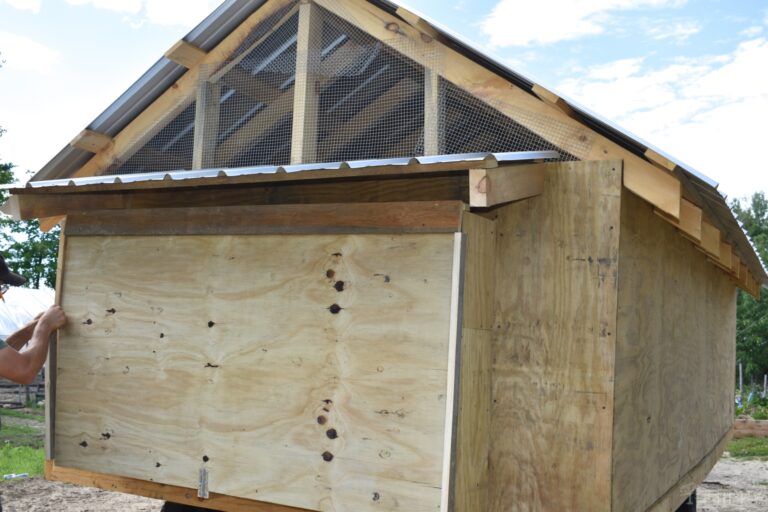
Inadequate Coop Ventilation
Chicken coops must be well-ventilated. This is so your birds get a constant supply of fresh air while inside and also so that harmful vapors and particulates in the air can get flushed out.
If you’ve been around high concentrations of chicken poop, you know that the ammonia smell can just about knock you down. That same smell can make your chickens very sick!
Yes, staying on top of keeping the coop clean will help in this matter, but you must still provide ventilation one way or the other. If the coop ever seems stifling to you, it’s going to be twice as bad for your birds.
Underestimating Predator Capability
Something else to keep in mind about predators is just how determined they can be to get an easy meal in the form of adult chickens, chicks, or eggs. You can’t underestimate them if you want to keep your flock safe.
Some predators, particularly raccoons and possums, have surprisingly dexterous paws that can undo simple latches and locks to let themselves in through windows, gates, and coop doors. Once they are in, it is going to be curtains for your birds.
Smaller predators like snakes can go absolutely anywhere that their heads can fit and they tend to be exceptional climbers.
Same thing goes for rodents and mice, which are both great climbers and can squeeze through even the tiniest opening as long as their skulls can fit through it.
Larger predators like badgers, coyotes, and wolves can easily jump over short-run fences, and if you go the extra mile and cover the run they can dig under the fence it in no time unless it is sunk or lined with rocks. Comprehensive predator protection is difficult and a constant battle, but it must be done.
Installing Too Small a Run
The chicken run is the enclosure right outside the coop and is a critical structure if you want to keep your flock happy and healthy. It keeps your chickens contained, but more importantly keeps them protected.
However, chickens need a personal space just like people, and they must be able to get away from flock mates they’re having trouble with.
Don’t make the mistake of having the run too small, and don’t assume that they have enough room just because they’ve got some room to spread out. An appropriate run will have at least 10 square feet per chicken.
Insufficient Coop Size
Just like a run, chickens need enough room for themselves inside the coop although they tend to pack in a little tighter when it’s time to roost and go to sleep.
Your coop doesn’t need as much room as the run does, but you still need to provide for the requirements of your birds. Generally speaking, anywhere from 3 to 5 square feet per adult chicken is enough, though very small breeds and bantams can get by with less.
Make sure you keep this in mind when you start adding to your flock! If your coop is already at capacity, you don’t want to add more chickens until you expand the coop!
Likewise, it’s always best to build a larger coop than you need if you have any notion of increasing the size of your flock in the future.
Forgetting Dietary Grit
For beginning keepers, forgetting grit is an easy thing to do. Chickens need grit in their diet to help them process food in the gizzard, basically a muscular pouch that contains pebbles, sand, small stones and other hard things- grit- that will help them break down larger bits of the things that they eat.
Chickens can get grit from the environment, but most owners I know like to optimize their grit intake with store-bought, specialized grit additives. It pays to ask other owners in your area what they do for grit.
Some soil types are more than adequate for furnishing grit, but others are not. Just be sure that your birds are getting it one way or the other.
Thinking Chickens Can Live on Scraps and Forage Alone
One of the best things about owning chickens is how self-sufficient they are, like I mentioned above.
It’s common to see chickens picking and scratching around the run or yard nabbing bugs, choice bits of grass and other plants, and other things that they like to eat.
This is certainly a good thing, as it’s good for the chickens mentally and also a great way to supplement their usual diet.
However, unless you live on a truly bountiful property that can supply them with virtually endless food (a near impossibility these days) your birds still need to get food from you in the form of chicken feed and select whole foods that are supplements or treats.
Don’t make the mistake of thinking that your chickens can live strictly off what they can get in the environment around them. They are adaptable, but not that adaptable!
Skimping on Sanitation
You probably heard before that chicken poop makes a good fertilizer. It is, but this is no excuse for you to not clean up after them.
Chickens are vulnerable to getting sick when exposed to any filthy environment, and since they poop pretty much 24/7 anywhere they happen to be, it will get dirty soon enough.
This means you need to move the run or tractor periodically so they have somewhere new and fresh to scratch and poop, and also that you must stay on top of changing out bedding inside the coop and occasionally cleaning it thoroughly.
The frequency with which you need to do this depends on the size of your flock and other factors, but generally, you’ll want to do this every couple of months at the least, changing out the bedding for fresh when you do.
Not Spending Time with Them
It is critical that chickens have other chickens to be around and bond with. They naturally live in flocks, of course.
But, your birds also need to bond with you if you’re going to live alongside each other happily: Chickens are intelligent and do show affection, and they certainly remember your face and whether or not you are nice or mean.
Because of this, the more time that you spend with him bringing them treats, being around them, cleaning them when they get dirty, and so on means they’ll be less afraid of you, less standoffish and happier to see you which means they will be healthier overall.
If your birds are getting stressed anytime you get close to them, that is going to negatively impact their lifespan and productivity.
It’s always best to raise your chickens from chicks to establish a strong bond as early as possible, but even adult chickens can learn to like you and trust you if you treat them right.
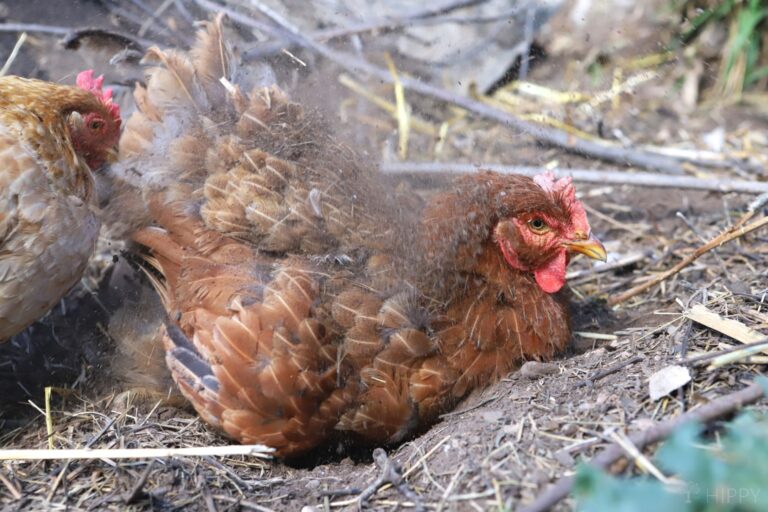
Provide a Dust Bath
Chickens typically get clean by taking a dust bath, which is exactly what it sounds like. A quantity of dry dirt, sand, and other similar material gets scooped up and splashed on them before they flap their wings and shake it all off.
I know it sounds like this would just make them dirtier, but it really does make a difference when it comes to the condition of their feathers and their freshness overall.
Chickens will instinctively seek out this dust in order to take a bath, but you can help them stay cleaner and even fresher by providing them with a small pit or shallow tub with a prepared dust bath.
Make sure they’ve got access to it at all times, because it’s not only important for cleanliness but also as a bonding activity: Believe it or not, chickens tend to have bath buddies in the flock that they like to bathe with!
If your chickens are dirty and want to take a bath, but can’t, there’s stress levels will start to rise higher and higher.
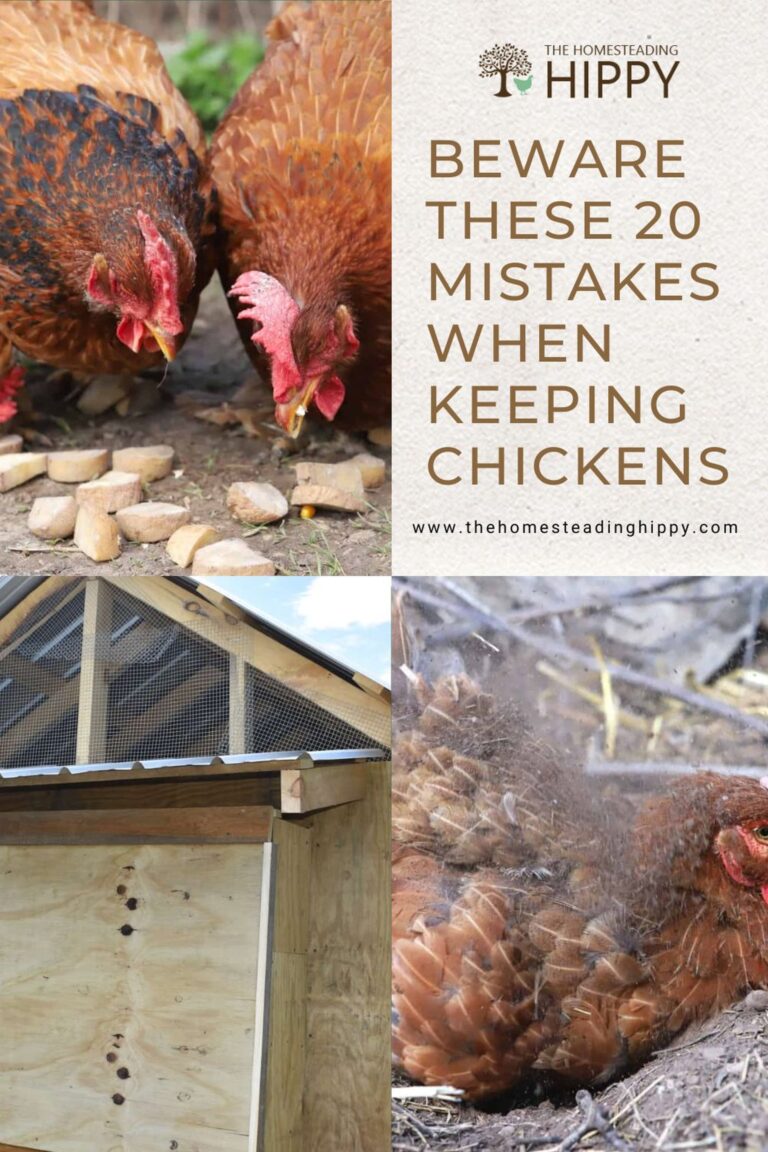
Tim is a farm boy with vast experience on homesteads, and with survival and prepping. He lives a self-reliant lifestyle along with his aging mother in a quiet and very conservative little town in Ohio. He teaches folks about security, prepping and self-sufficiency not just through his witty writing, but also in person.
Find out more about Tim and the rest of the crew here.
